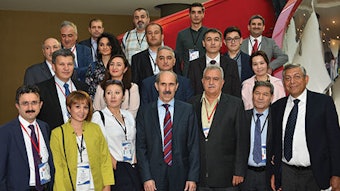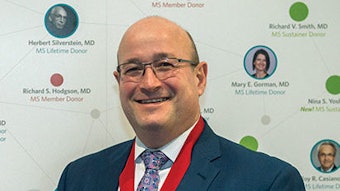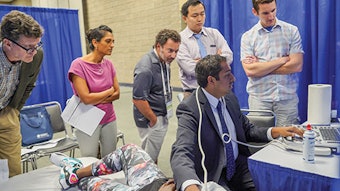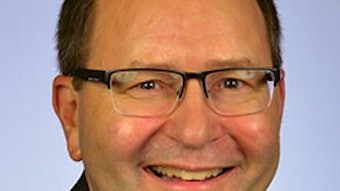Renewal, reflection, regret
On May 18, 2015, Jenny and I went to my one and only appointment at the University of Washington Weight Loss Management Center. I was 49 years old and felt appreciated, effective, connected, and successful. I had lots of energy and a million friends—but I also felt that I was dying a bit as every day passed.
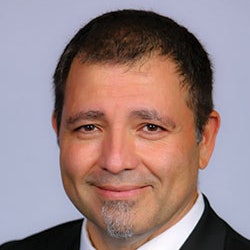 Albert L. Merati, MD
Albert L. Merati, MD
AAO-HNS/F Past President
Strangely, while I was sitting in that waiting room that day, I pondered my reasons for being there. I reflected on all of the times I asked medical students to think of that patient who shows up in clinic with a massive basal cell carcinoma eroding their facial structures. Students always came up with a pretty good list of reasons that a given patient might have delayed care: access, insurance, misinformation, denial, other aspects of mental illness, fear, and improper diagnosis, among many others. That someone would wait so long to seek care never amazed or surprised me; what was more curious to me was what triggered the first appointment and what was going through the patient’s mind that day when they sought care.
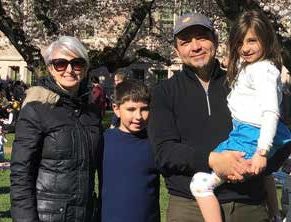 Dr. Merati with his family.
Dr. Merati with his family.In my case, I had plenty of information, all of the access, and, as far as I know, was relatively sound of mind. What triggered my visit that day? It wasn’t a chest pain scare (I had one two years before then) or tearful pondering of future weddings missed and grandchildren never seen. It wasn’t the fear of being forgotten or leaving things unfinished. For me, it was the simple realization that being unhealthy— dying prematurely or becoming permanently disabled— would limit my capacity as a provider for my family. This narrow view of myself as a provider was what ultimately motivated me toward change.
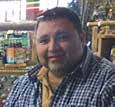 Dr. Merati in 2015 before his journey of renewal.
Dr. Merati in 2015 before his journey of renewal.I was self-aware enough to know that I couldn’t refuel in-flight. I spoke with Jenny, my chair (Neal D. Futran, MD, DMD), and my division partners to share my plans and ask for their support. No one put any limitations or expectations on my plan, a luxury of my position that I do not take for granted. I chose to take six weeks off from clinical work (split on either side of July 1 to minimize the impact on any one fellow or fiscal year). During those six weeks, I focused on the simple habits of eating more carefully and going for a two- to three-mile walk every day. That is it—nothing magical. I realize it isn’t the same for everyone, but the lesson for me was that I needed to stop the car and pull over to the side of the road to make changes. I regretted waiting 17 years after completing training to take this time off. I should have done it years before. For those of you pondering a change you’d like to make in your life— habits to break, improvements to make, relationships to nurture—do it now.
For those of you early in your careers: You might find yourself getting away with your unwanted habits for some time. Take care of yourself. Being overweight is a common and visible challenge that many of us face, but it is not the only one. Many of us suffer from lifelong battles that others are not aware of and can’t see from across the room. Whatever you are doing to stay healthy and renewed, keep it up. If you are veering off track, stop and give yourself a chance to change if you can’t do it while the wheels are turning. Those of you to whom your partners and trainees reach out— support them as they work toward the changes they need to make for themselves. Who among us is so critical that they can’t be away from work to allow ourselves to heal and improve? While it may not be easy for any of us, I imagine that some version of renewal and self-improvement is available to all of us.



